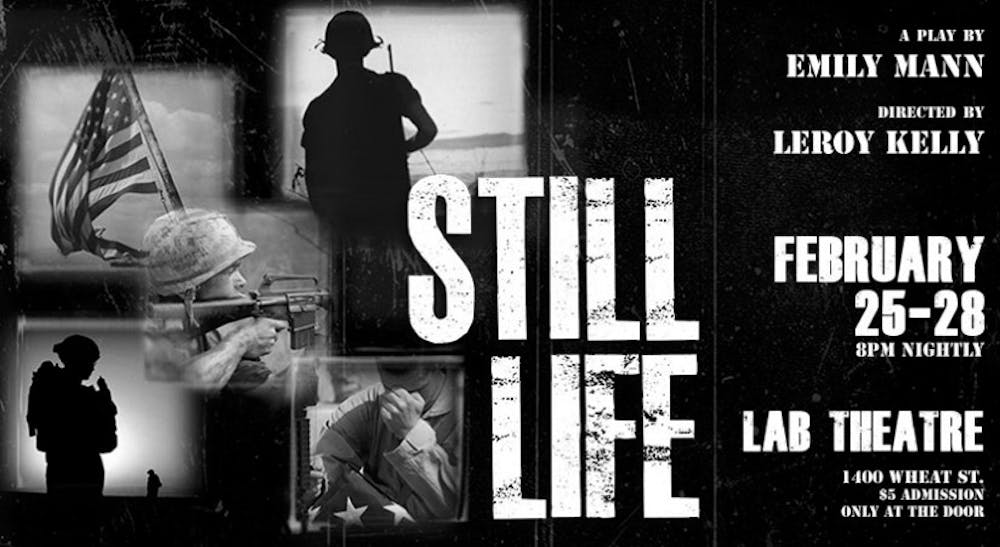Emily Mann's play "Still Life," put on by the USC Theatre and Dance Department, provides a glimpse into the turmoil that follows war. The play takes place post-Vietnam War, and is shown through the perspectives of Mark, a Marine; Cheryl, his wife; and Nadine, the woman Mark is having an affair with.
"Still Life," presented in a documentary style with various interwoven monologues, allows the viewer to witness the complexities that follow war. The play, which will run at The Lab Theatre from Feb. 25-28, makes a point to showcase that Mark's PTSD is not only an issue for him, but also for those around him.
Director Leroy Kelly's own service as a Marine was an inspiration and an important factor for his take on telling the story. Kelly, a fourth-year theatre student, said he enjoys everything the play talks about because of the parallels between the post-war effects on Vietnam veterans and the current post-war era following the Iraq and Afghanistan wars. "I feel like it's a timely piece," he said.
The play creates diverse backgrounds for each character with perspectives completely contrary, yet complementary, to one another. The erratic movement between speakers adds to the documentary style of this play.
“To get into these roles, it’s really hard because these people in this play have experienced very traumatic events,” Kelly said. “For these actors, it was a very hard role for them to personalize and internalize, and they’re doing it beautifully," he said.
The characters portrayed in "Still Life" have gone through many difficult experiences, and bringing each role to life took a lot of work from each cast member. Beth Paxton, fourth-year hospitality management student, plays Nadine, a character who is "completely different" from her. “She’s an alcoholic, so it’s definitely been an adventure delving into something like that,” she said.
Sixth-year theatre student Cedrick Cooper, who plays Mark, said that the audience is really going to have to pay attention to the dialogue. "But the way we give it to the audience, it’ll be easier to follow. It definitely breaks that fourth wall. It’s crazy,” he said.

